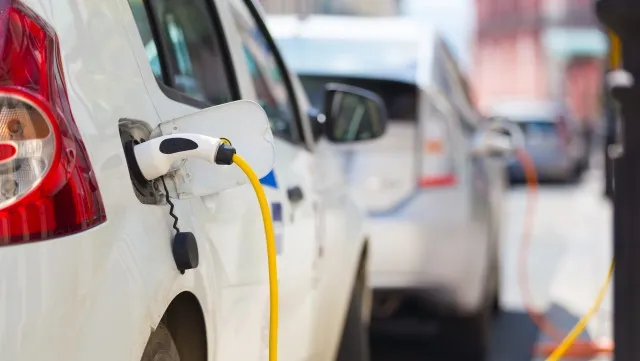Electric motorways could charge electric cars on the go

These trials are the first of their kind in the country and could help boost the uptake of electric cars.
While the idea might sound pretty wacky, it’s actually firmly based in reality. Highways England has already completed a feasibility test into the technology. Later this year, it will build an off-road testing site where electric and hybrid cars will be fitted with wireless technology and an unspecified equipment will be installed underneath the road. The cars will then be able to recharge their electric batteries along the road surface.
It may lead to motorways eventually having a specific charging lane and, according to V3 , it will work by “charging vehicles as they travel via road-side charging units that link to conduction or wireless charges under the road that connect to cars as they pass.” The full picture remains unclear for now, but Highways England say that further details will be announced as soon as the government appoints a contractor.
Researchers will test the equipment with various driving conditions. As BBC News explains, the technology has already been pioneered elsewhere. Buses in South Korea can charge in specific routes using a process called Shaped Magnetic Field In Resonance , charging their batteries through a magnetic field that generates electricity.
“The potential to recharge low emission vehicles on the move offers exciting possibilities. The government is already committing £500 million [$780 million] over the next five years to keep Britain at the forefront of this technology, which will help boost jobs and growth in the sector,” Transport Minister Andrew Jones said in a statement .
Electric or hybrid cars can come in all shapes and sizes. Some experts suggest that electric cars could help combat climate change as they emit less greenhouse gas than conventional cars. The mass implementation of electric cars is, however, still being hotly debated by environmentalists. One of the main drawbacks for consumers is what experts describe as “range anxiety.” As electric cars have limited driving range, they need to be regularly recharged. Consumers therefore feel anxious that their car isn’t charged enough to get them to their destination, or that they won’t find a charging point on route.
To overcome this limitation, Highways England wants to develop charge-as you-drive technology. “Vehicle technologies are advancing at an ever increasing pace and we’re committed to supporting the growth of ultra-low emissions vehicles on our England’s motorways and major A roads,” Highways England Chief Highways Engineer Mike Wilson said in a statement .
“The off road trials of wireless power technology will help to create a more sustainable road network for England and open up new opportunities for businesses that transport goods across the country,” he added.
Highways England expects the tests to last for 18 months, and if successful, this could be followed by on-road trials. As well as these tests, Highways England is committed to installing charging points every 32 kilometers (20 miles) on the motorway network.
Tags:





